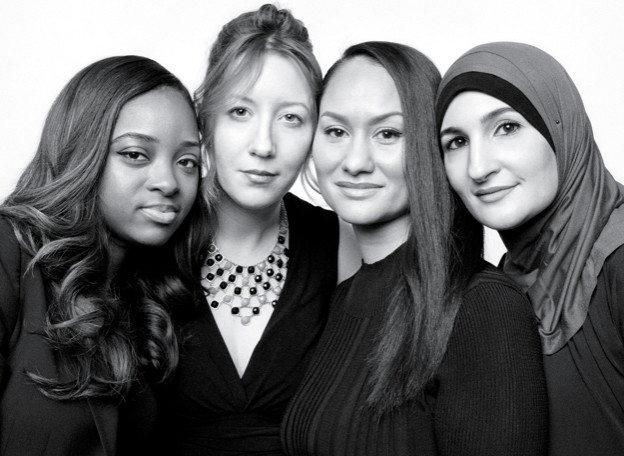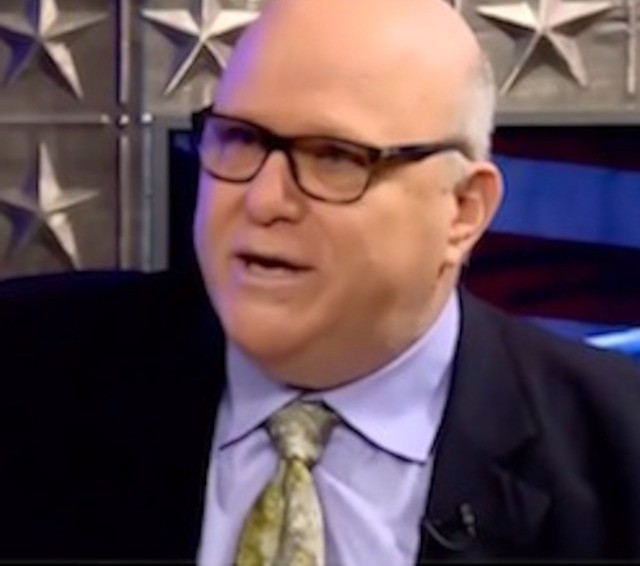Despite sunlight, Women’s March still anti-Semitic
The first American Jew appointed to the Supreme Court, Justice Louis Brandeis, famously said, “Sunlight is said to be the best of disinfectants.”
Two months ago, one of the Women’s March founders, Teresa Shook, publicly called for the co-chairs of the movement — Bob Bland, Tamika Mallory, Linda Sarsour and Carmen Perez — to step down. She wrote on her Facebook page in part, “In opposition to our Unity Principles, they have allowed anti-Semitism, anti-LBGTQIA sentiment and hateful, racist rhetoric to become a part of the platform by their refusal to separate themselves from groups that espouse these racist, hateful beliefs.”
Since Ms. Shook’s statement, the mainstream media has begun to unmask the Women’s March, exposing its leaders’ anti-Semitism to sunlight. The Chicago and New Orleans Women’s Marches, scheduled with the rest of the country for Saturday, January 19th, were cancelled.
Last week began with Women’s March organizer Tamika Mallory’s national media appearances to promote the march. On The View, she claimed that she didn’t agree with anti-Semitic statements made by Louis Farrakhan, but stopped short of condemning them. Sponsors began to pull out, including the NAACP, the Human Rights Campaign and, notably, the Democratic National Committee, which has its own issues.
Then, on PBS’s Firing Line, Mallory explained to host Margaret Hoover why march organizers believed that “Jews, as white people, uphold white supremacy” even as they are targeted by supremacists.
She went on to claim that Palestinians are native to Israel since they have been there for a very long time, prompting Hoover to ask, “Do you feel that the Jewish people are native as well?”
Mallory answered, “I know, I understand the history, that, you know, that there are people who have a number of sort of ideologies around why the Jewish people feel this should be their land,” and said that it wouldn’t be fair of her to answer the question because she isn’t Jewish. (As Hoover pointed out, Mallory is not Palestinian, but was willing to declare Palestinians native anyway.) Later, she refused to say that Israel has the right to exist.
You would think that the exposure would have forced Women’s March leaders and speakers to keep their bias under wraps during this past Saturday’s national event. But you would be wrong. If anything, the anti-Semitism became more blatant.
On Saturday morning, March organizers released an agenda for the group decrying the anti-BDS bills, passed in 26 states, that prohibit government agencies from doing business with companies that boycott Israel. The BDS movement bases its attacks on fabricated human rights violations, double standards, false comparisons to apartheid South Africa, and false accusations of “war crimes.” The movement’s purpose is to delegitimize Israel and deny the Jewish people their right to self-determination.
At the Women’s March on Saturday, many spoke in support of BDS. Co-chair Linda Sarsour implied that reports of anti-Semitism in the March were contrived by the media to protect President Trump, and announced that the Women’s March was calling for defending “freedom of speech and the constitutional right to boycott, divestment, and sanctions in these United States of America.”
Tamika Mallory, who has taken the stance that the very creation of Israel was a human rights crime, didn’t apologize. “To my Jewish sisters, do not let anyone tell you who I am,” she said. “I see all of you. No matter what they say, no matter what they write, I will not bend … I am who I am for over 20 years and no media outlet and no one else will tell you — I’m telling you, I love all people and no one will define for me who I am. Only I can do that.”
New York Senator Kirsten Gillibrand, who has said that she rejects the organizers’ anti-Semitism, spoke at a Women’s March event in Iowa. (Conveniently, the presidential candidate attended a rally in the state whose caucus next February will be the first votes of the 2020 race for the Democratic Party nomination.)
Nicole Guzik, who leads a Reform congregation in Los Angeles, was promised that her local march would not be an anti-Israel hate fest. When that promise was broken, she wrote an open letter to the organizers, which was published in the Los Angeles Jewish Chronicle.
“I was assured by you, the founders of this March, countlessly in a private meeting, that this March was different. That in Los Angeles (unlike the National March) Israel would not be attacked, labeling Israel as an apartheid state would be unwelcome on the stage and if a speaker went off script, the managers of the program would raise the music. In the very first hour of the Women’s March L.A. program at Pershing Square, all those promises were broken.
“Marwa Rifahie, representing the Council on American-Islamic Relations used her allotted time to focus on the Palestinian agenda, a conversation that I was told would not be a focus. I waited. When she called Israel an apartheid state … I waited. Where was the music? Where was someone asking her to remain on script?
“I used my voice, opinion and reputation to defend you, the founders that assured me, a Jewish woman was welcome and needed. I know I’m needed but today, I was not welcomed.”
Some contend that the Women’s March leaders don’t have a problem with Jews — just Israel. But the Reverend Martin Luther King Jr., whose life we celebrate this week, would disagree.
The late sociologist Seymour Martin Lipset, a professor of government and sociology at Harvard, related that shortly before he was assassinated:
“Reverend King was in Boston on a fundraising mission, and I had the good fortune to attend a dinner which was given for him in Cambridge … He wanted to find what the Negro students at Harvard and other parts of the Boston area were thinking about various issues, and he very subtly cross-examined them for well over an hour and a half. He asked questions, and said very little himself.
“One of the young men present happened to make some remark against the Zionists. Dr. King snapped at him and said, ‘Don’t talk like that! When people criticize Zionists, they mean Jews. You’re talking anti-Semitism!’”

 48.0°,
Overcast
48.0°,
Overcast 







